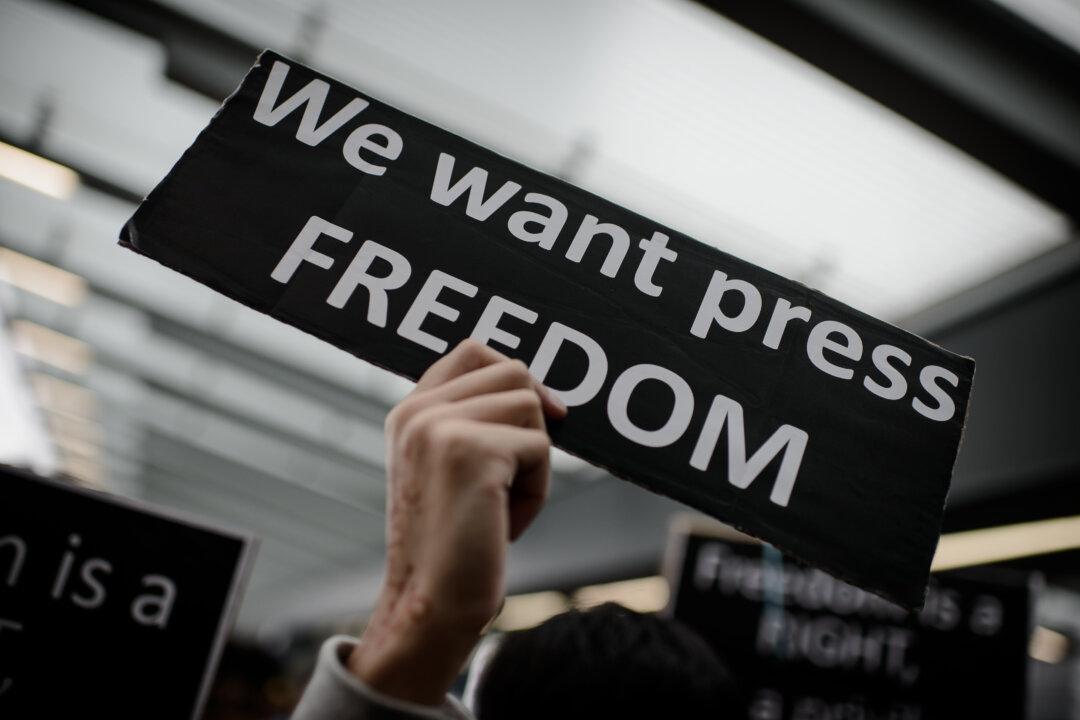Nearly half of the journalists and correspondents in Hong Kong are considering leaving as the working environment has “deteriorated significantly” under the Beijing-imposed national security law.
The press freedom survey released on Nov. 5 by the Foreign Correspondents’ Club (FCC) in Hong Kong found that about 46 percent of the respondents were considering or had plans to leave the city.




